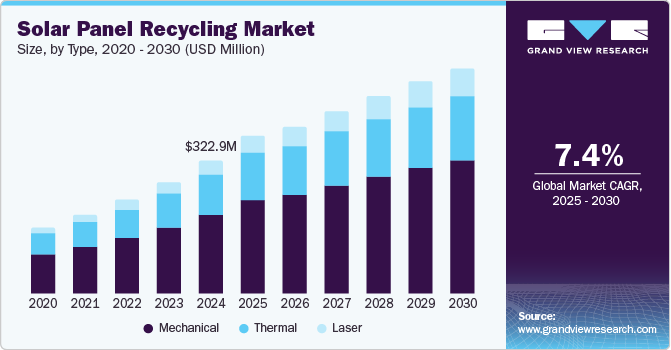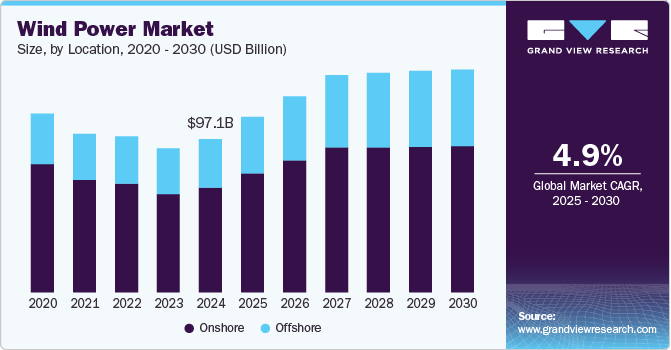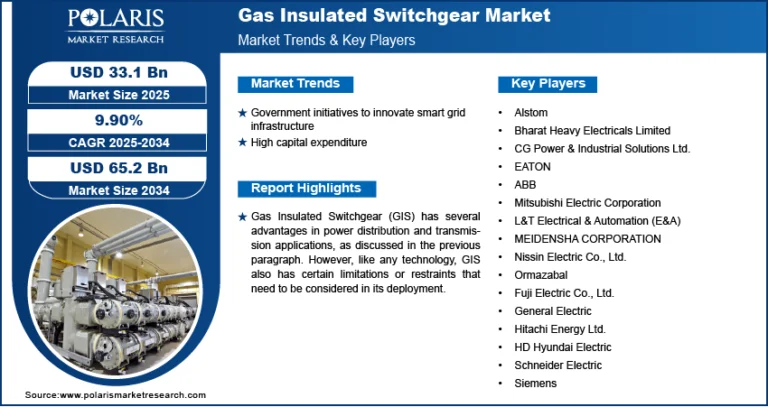Solar Panel Recycling Market Size, Share & Trends Analysis growing at a CAGR of 7.3% from 2025 to 2030

The global solar panel recycling market size was estimated at USD 322.9 million in 2024 and is projected to reach USD 548.0 million by 2030, growing at a CAGR of 7.3% from 2025 to 2030. This growth is driven by the increasing installation of solar energy systems worldwide, leading to a corresponding rise in end-of-life panels that must be managed effectively.
Key Market Trends & Insights
- In terms of region, Europe was the largest revenue generating market in 2024.
- Country-wise, India is expected to register the highest CAGR from 2025 to 2030.
- In terms of segment, mechanical accounted for a revenue of USD 228.8 million in 2024.
- Laser is the most lucrative type segment, registering the fastest growth during the forecast period.
Market Size & Forecast
- 2024 Market Size: USD 322.9 Million
- 2030 Projected Market Size: USD 548.0 Million
- CAGR (2025-2030): 7.3%
- Europe: Largest market in 2024
Request a free sample copy or view report summary: https://www.grandviewresearch.com/industry-analysis/solar-panel-recycling-market/request/rs1
As these panels end their operational lifespan, there is a growing demand for recycling solutions to recover valuable materials such as silver, silicon, and aluminum.
In addition, tightening environmental regulations and sustainability initiatives are pushing stakeholders to adopt recycling practices to minimize environmental impact and promote circular economy principles. Innovations in recycling technologies are also enhancing efficiency and reducing costs, further supporting market growth. The combined effect of these factors is expected to drive the solar panel recycling market forward in the coming years.
Regulatory frameworks and environmental policies encourage the safe disposal and recycling of solar panels, helping to minimize waste and promote sustainable practices. For instance, the European Union’s Directive 2002/96/EC on Waste Electrical and Electronic Equipment (WEEE) requires collecting and recycling electrical and electronic waste, including solar panels, specifically covered under the updated 2012 and 2018 directive revisions. This helps ensure the recovery and reuse of valuable materials such as silicon and silver. Similarly, countries including India and China have introduced policies to manage solar photovoltaic waste, driven by ambitious renewable energy targets and the need to address environmental concerns.





